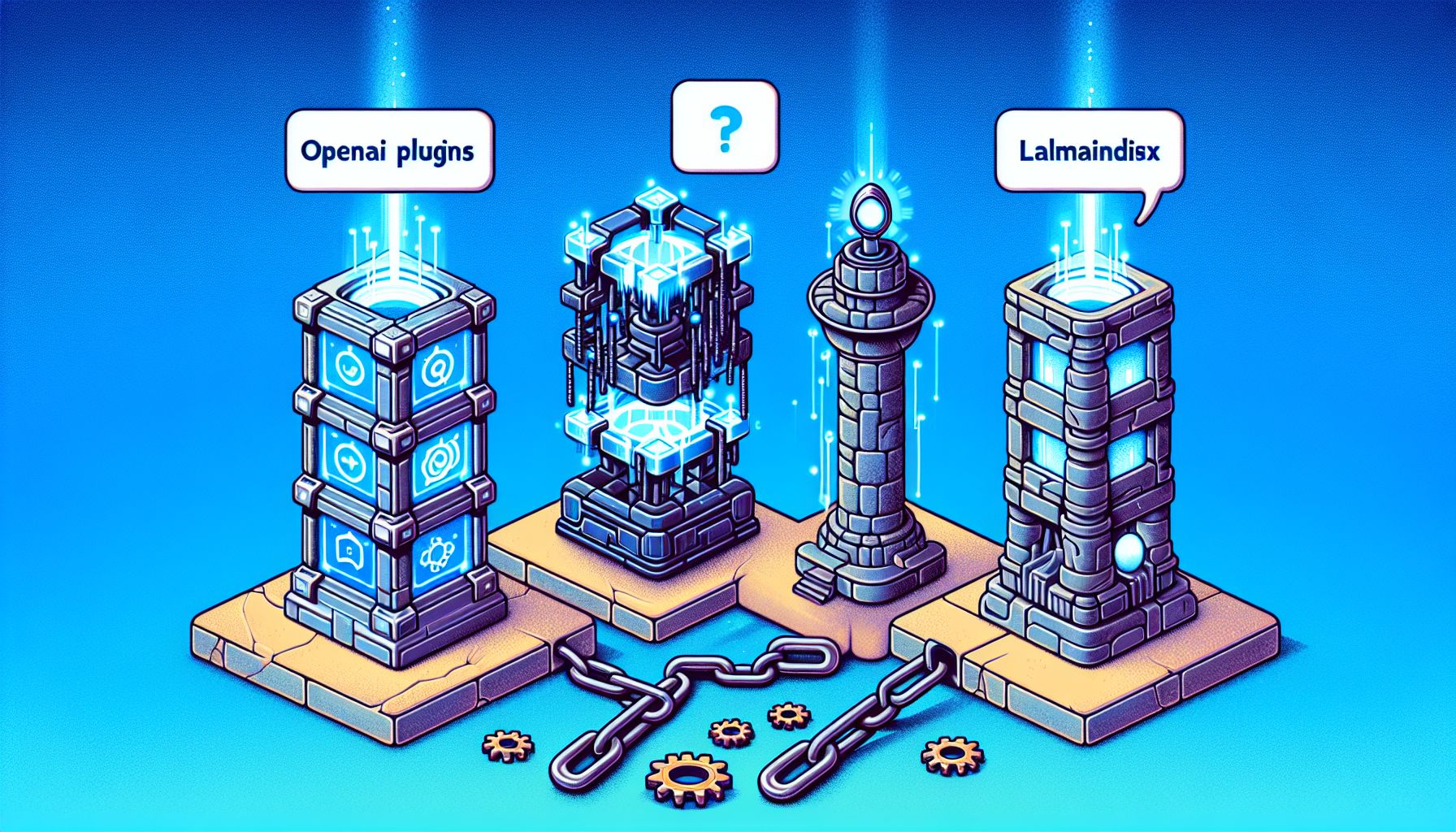📌 Let’s explore the topic in depth and see what insights we can uncover.
⚡ “Decoding the mysteries of NLP pipelines, we plunge into the showdown of the century: OpenAI Plugins vs LangChain vs LlamaIndex. Who will emerge as the champion in this epic battle of linguistic computing titans?”
Welcome, tech enthusiasts! 🎉 If you’re as fascinated by Natural Language Processing (NLP) as we are, then you’ve landed at the right blog post. Here, we’re about to embark on an enlightening journey through the realms of OpenAI Plugins, LangChain, and LlamaIndex. These three are some of the most exciting tools on the NLP horizon, and they’re all vying for the spotlight in your NLP pipelines. But which one deserves the center stage? Hold tight, as we’re about to find out! In the following sections, we’ll dive deep into each of these tools, exploring their features, capabilities, strengths, and limitations, all in the name of helping you make a more informed decision for your NLP projects. So, put on your tech goggles, grab your metaphorical surfboard 🏄♀️, and let’s catch the wave of NLP innovation!
🤖 OpenAI Plugins: Unleashing the Power of GPT-3

"Battle of NLP Titans: OpenAI, LangChain & LlamaIndex"
OpenAI has become a household name in the AI industry, and its GPT-3 model is nothing short of legendary. But did you know that OpenAI also offers plugins that can seamlessly integrate the power of GPT-3 into your applications? Let’s dive into the features that make OpenAI Plugins a strong contender in the NLP race.
Features and Strengths 💪
GPT-3 Integration
OpenAI Plugins provide a smooth pathway to integrate GPT-3 into your applications. This means you get to utilize one of the most powerful language models in your NLP pipeline.
Ease of Use
OpenAI has always prioritized user experience, and their plugins are no exception. 🧩 As for They, they’re designed to be straightforward to implement, making it easier for developers to integrate advanced NLP capabilities into their apps.
Versatility
These plugins can be used for a range of tasks, such as text generation, translation, summarization, and more. This versatility makes them a great option for diverse NLP projects.
Limitations 🚧
The primary limitation of OpenAI Plugins is their dependency on GPT-3, which comes with its own set of constraints, such as high computational requirements and potential ethical concerns.
🌐 LangChain: Bridging Language Barriers
Next up in our NLP showdown is LangChain, a blockchain-based language service platform. LangChain aims to break down language barriers using advanced NLP technologies. Let’s take a closer look at what LangChain brings to the table.
Features and Strengths 💪
Decentralization
LangChain leverages blockchain technology to create a decentralized language service. This approach ensures data security and fairness in the distribution of rewards for contributors.
Multiple Languages
As the name suggests, LangChain is all about languages. It supports numerous languages, making it a versatile choice for global projects.
Community Involvement
LangChain involves its user community in improving its services, which can lead to continuous enhancement of its NLP capabilities.
Limitations 🚧
The key limitation of LangChain is its reliance on blockchain technology, which while providing many benefits, may also introduce complexity and scalability issues. Additionally, the quality of the service is dependent on the community, which can be variable.
🦙 LlamaIndex: A New Kid on the NLP Block
Finally, we have LlamaIndex, a relative newcomer in the NLP landscape. LlamaIndex aims to revolutionize the way we interact with text data through its advanced indexing and search capabilities.
Features and Strengths 💪
Fast Indexing
LlamaIndex stands out with its powerful indexing capabilities. It can quickly index large volumes of text data, making it a great choice for big data projects.
Advanced Search
LlamaIndex offers semantic search capabilities. This means you can search by meaning, rather than just keywords, which can significantly enhance the search experience.
Scalability
LlamaIndex is designed to scale. Whether you’re dealing with a few documents or millions, LlamaIndex can handle the load.
Limitations 🚧
As a newcomer, LlamaIndex may lack the robustness and extensive feature set of more established tools. Additionally, while its indexing and search capabilities are impressive, it may not be the best choice for other NLP tasks like text generation or translation.
🧭 Conclusion: Picking the Right Tool for Your NLP Pipeline
So, which tool should take center stage in your NLP pipeline — OpenAI Plugins, LangChain, or LlamaIndex? The answer, as is often the case in technology, is “it depends.” Each of these tools brings unique strengths to the table, and the best choice will depend on your specific needs and constraints. If you’re looking for a versatile tool with the power of GPT-3, OpenAI Plugins could be a great choice. On the other hand, if you’re dealing with multiple languages and value data security, LangChain’s decentralized approach may be more appealing. And if you’re all about indexing and semantic search, you might want to give LlamaIndex a shot. Remember, it’s not about finding the “best” tool, but rather the one that best fits your project. So, take your time, explore these tools, and make an informed choice. Here’s to your success in the fascinating world of NLP! 🚀
📡 The future is unfolding — don’t miss what’s next!
🔗 Related Articles
- Midjourney vs DALL·E 3 vs Leonardo: Which AI Image Tool Is Best?
- Claude 3 vs ChatGPT: Which AI Assistant Performs Better in 2025?
- Introduction to Supervised Learning ?What is supervised learning?Difference between supervised and unsupervised learning, Types: Classification vs Regression,Real-world examples
